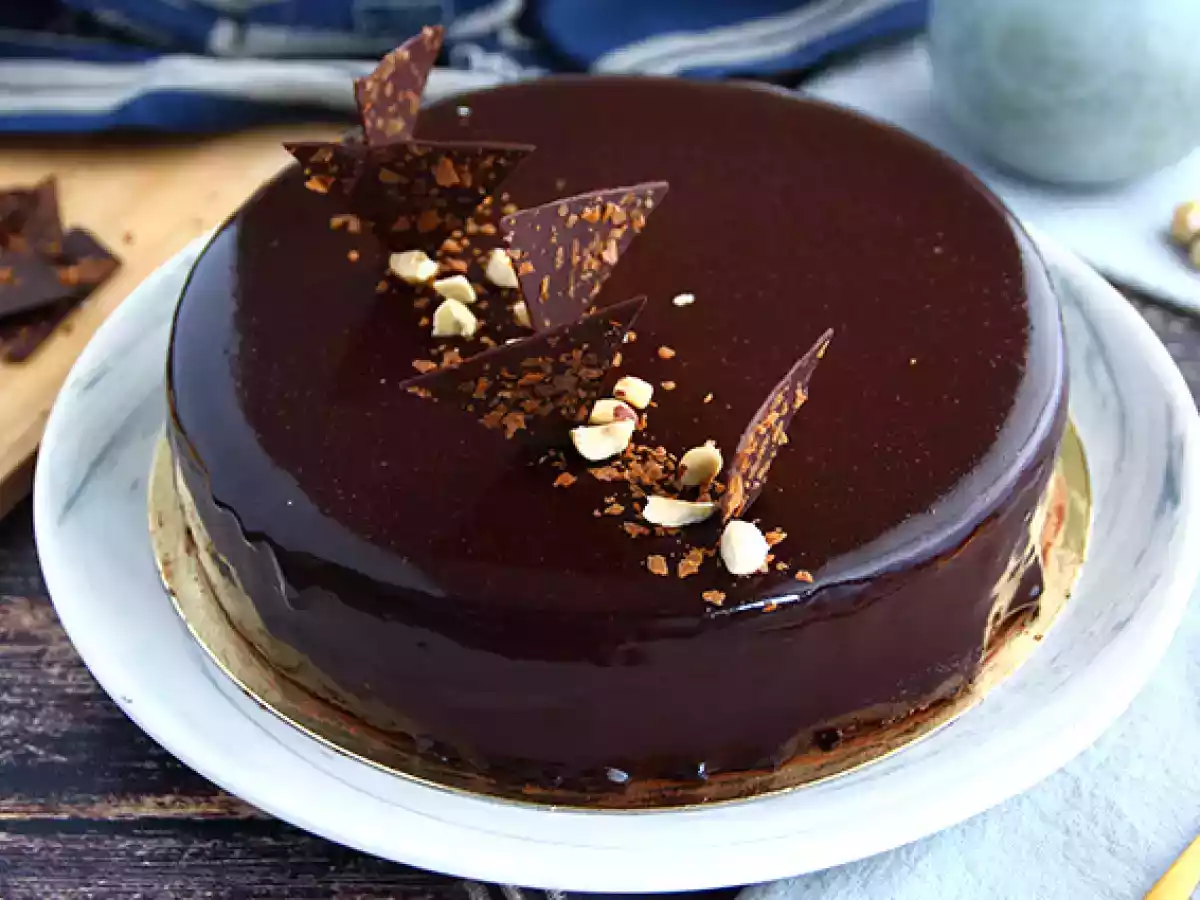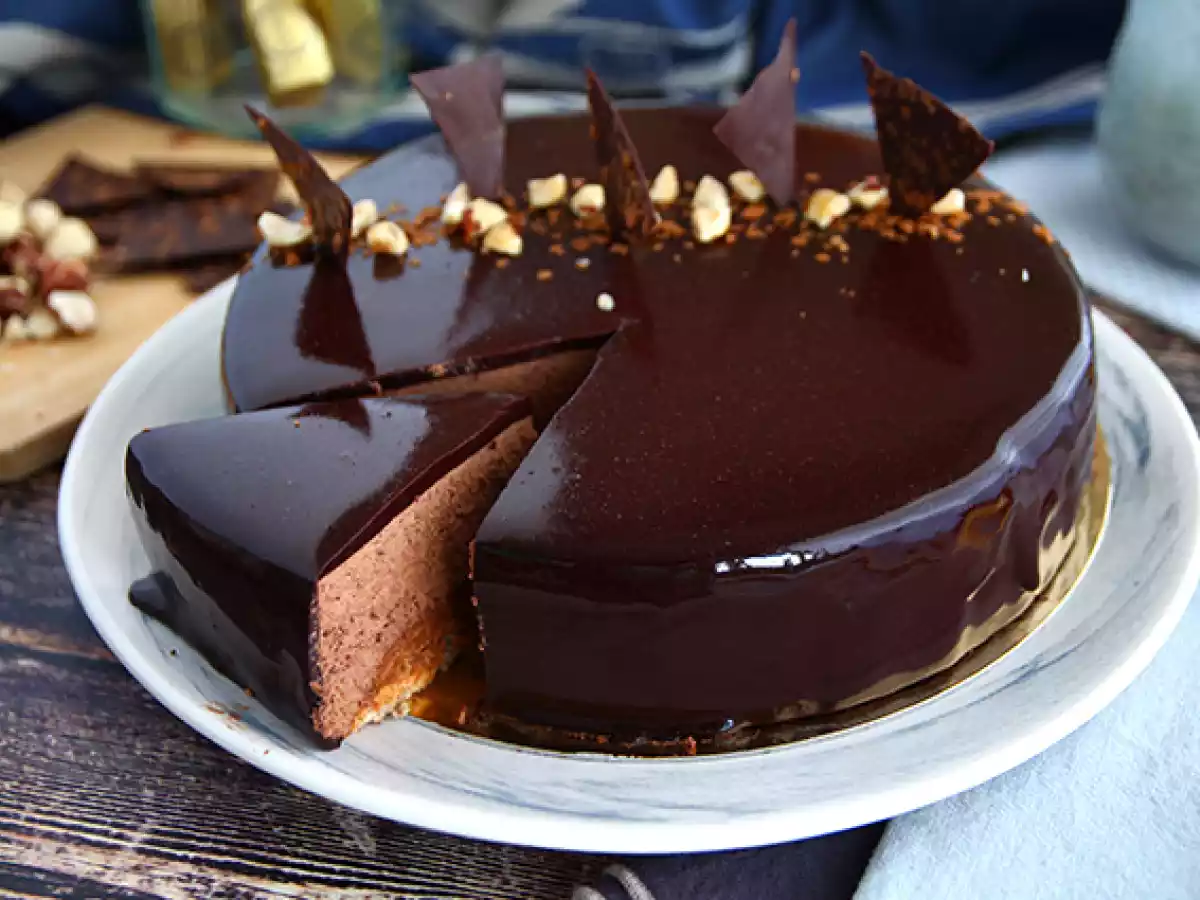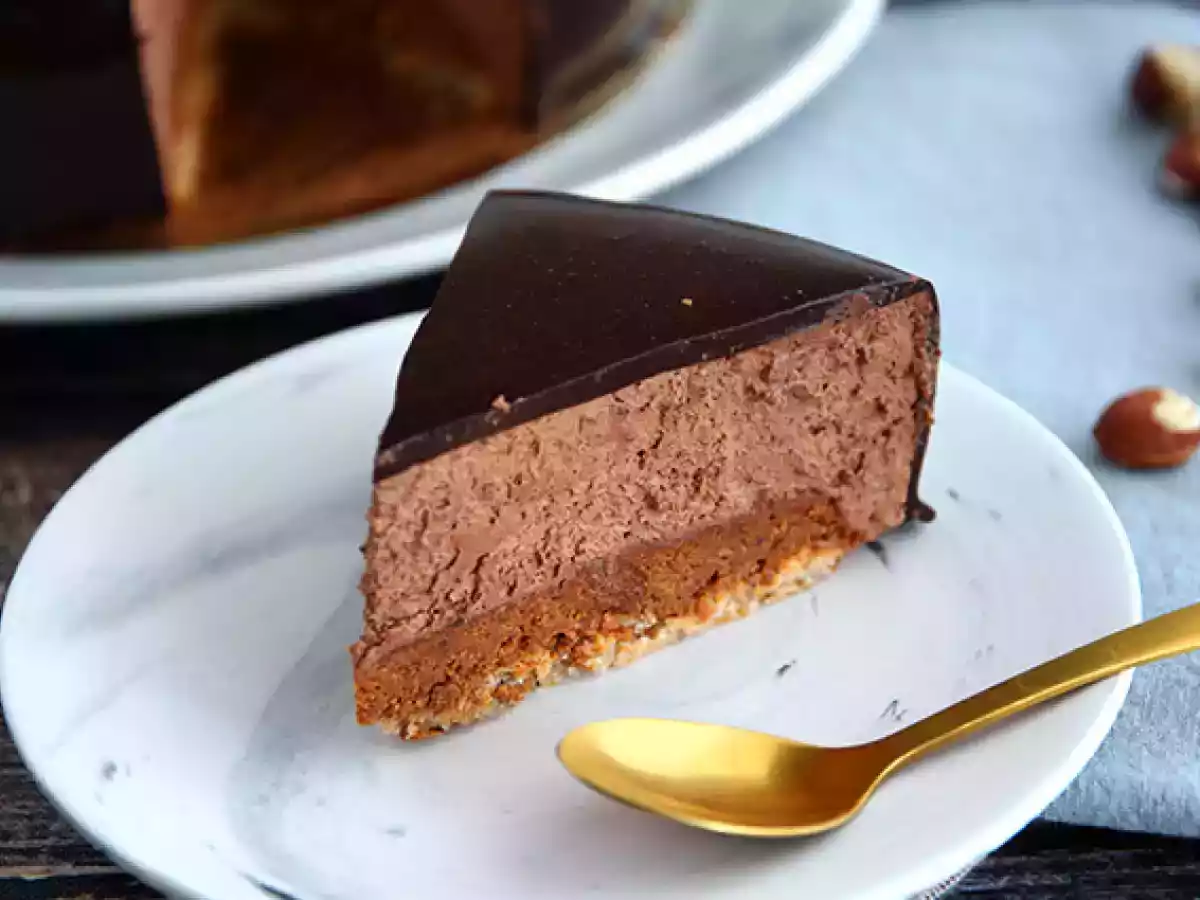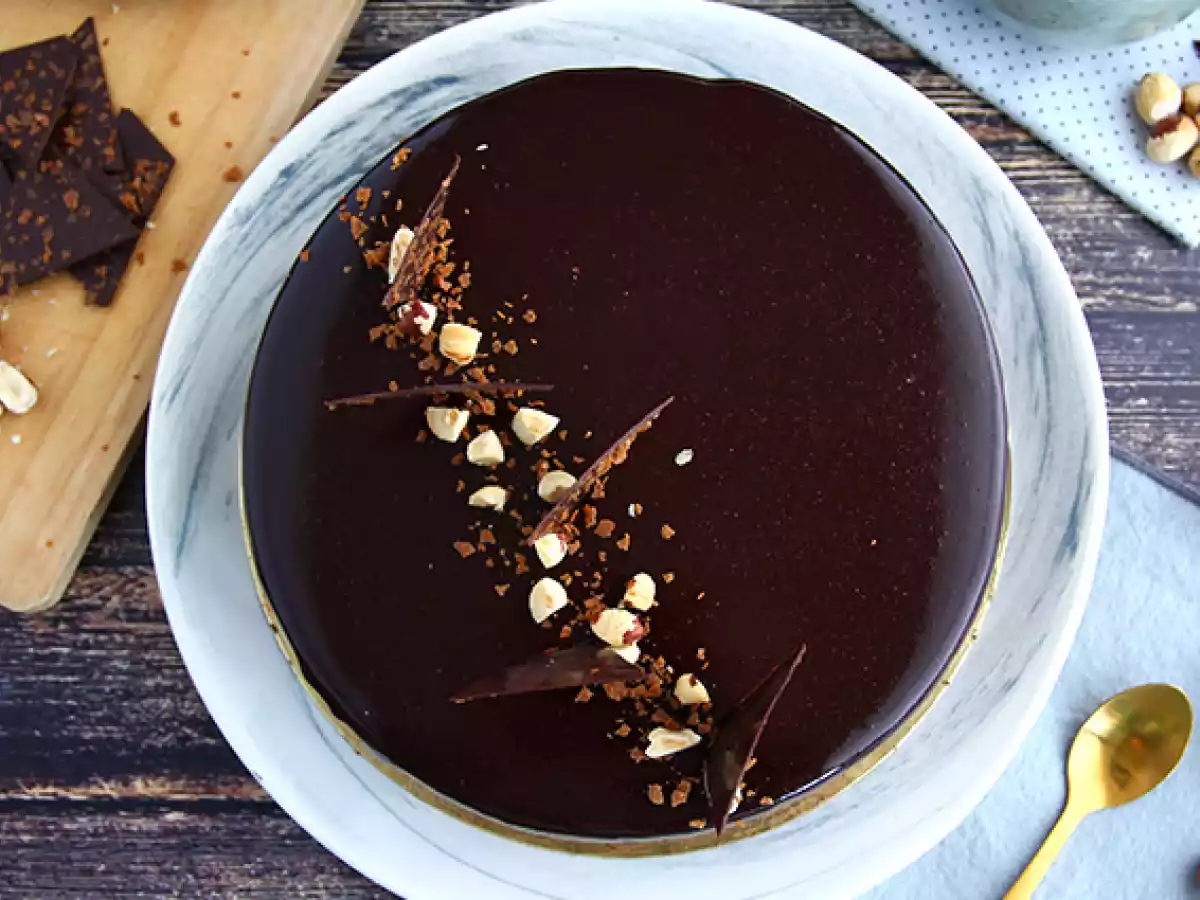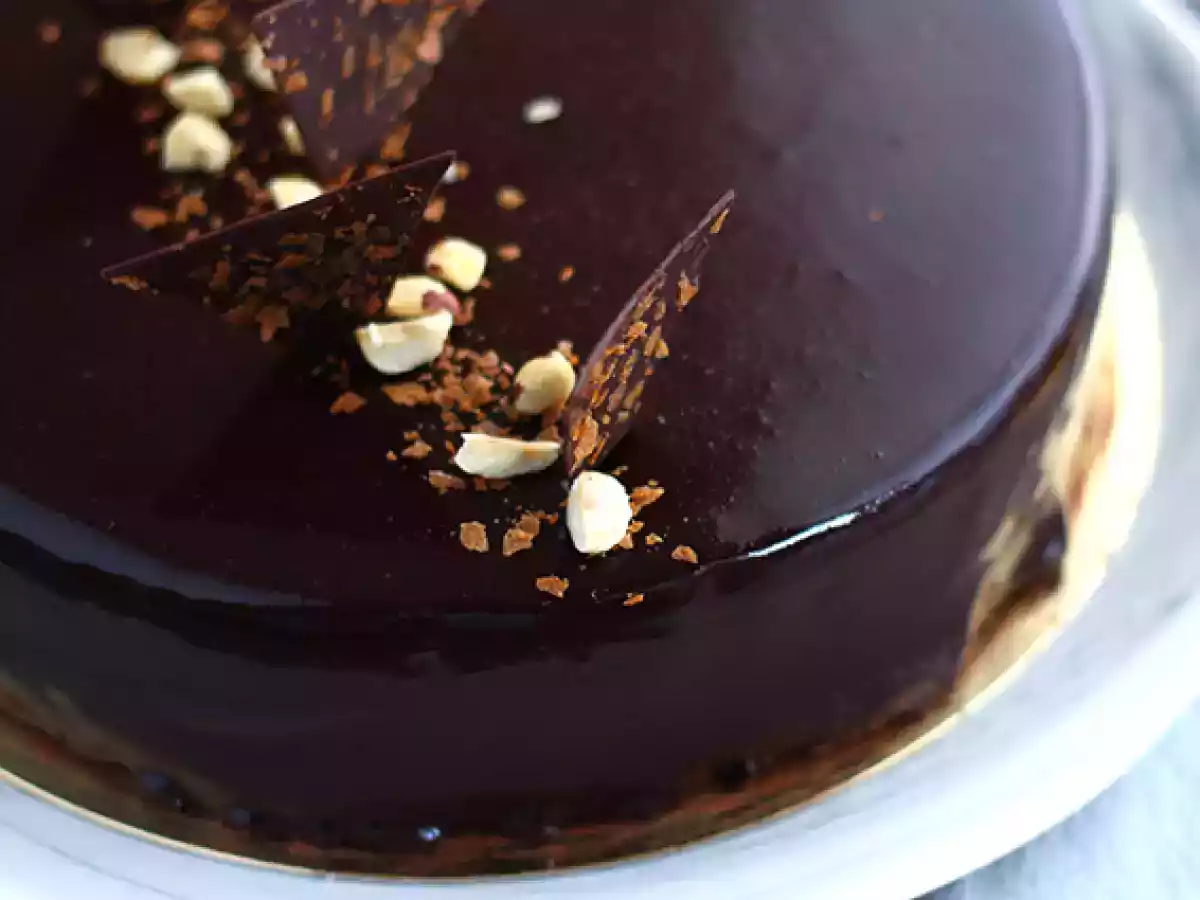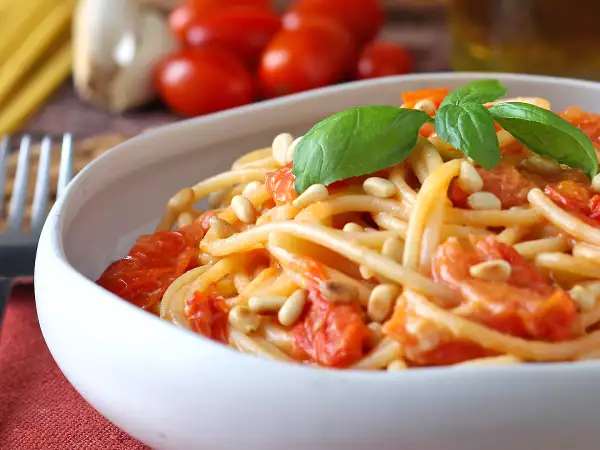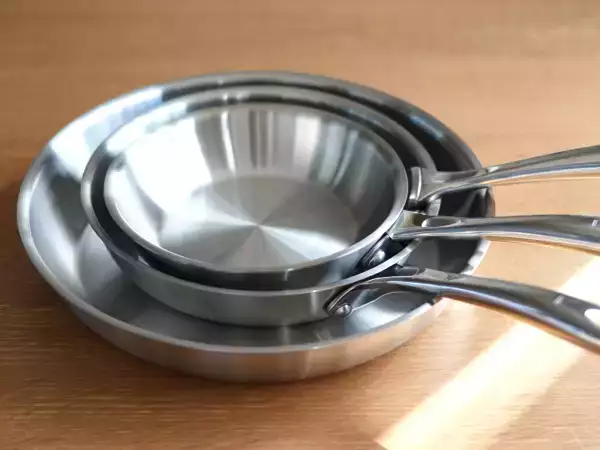Royal chocolate or trianon (video and tips)
vote now
Do you have a birthday or other special event planned, and would like to go all out for dessert? Follow our step-by-step recipe for Royal Chocolate, also known as Trianon. A light, gourmet, and above all chocolaty dessert! Composed of a hazelnut dacquoise, a praline crunch, a chocolate mousse, and a mirror glaze, a simple and refined decoration will complete the whole. It's up to you!
Ingredients
10
Hazelnut dacquoise :
Praline crisp :
Chocolate mousse :
Mirror glaze :
Decoration :
Materials
- Electric mixer
- Pastry bag
- Angled spatulas
- Entremets ring, 7.8 inches/20 cm diameter and 1.7 inches/4.5 cm high
- Rhodoid
- Grid
- Thermometer
- Chopper
- Whisk
- Frying pan
- Saucepan
- Colander
